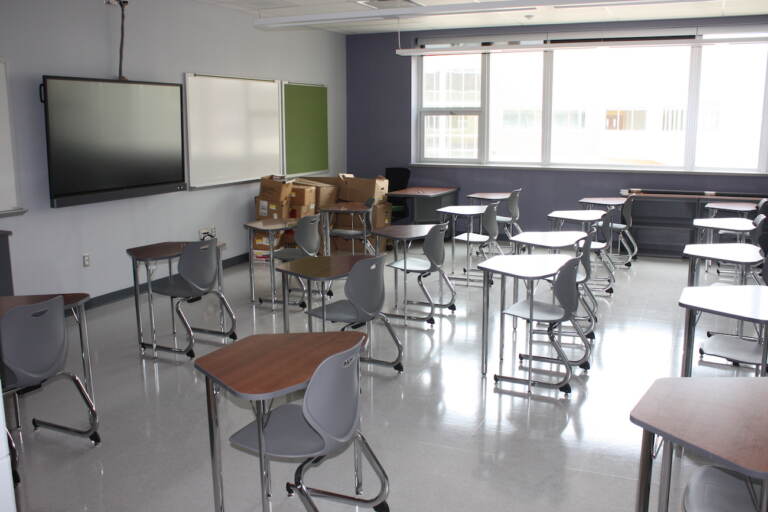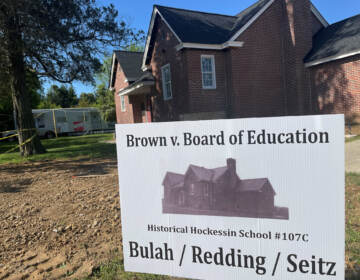No decision in N.J. school desegregation case
It’s likely that presiding Judge Robert Lougy may provide a written opinion at a later date, given the magnitude of the case.

File photo: A classroom inside Camden High School. (P. Kenneth Burns/WHYY)
On Thursday, attorneys in a New Jersey school desegregation lawsuit wrapped up oral arguments, in a case that has been years in the making.
But the public will have to wait to hear a final ruling on the matter, as the presiding Judge Robert Lougy announced he would not provide an oral decision at the end of the hearing.
It’s likely that Lougy may provide a written opinion at a later date, given the magnitude of the case.
Lawyers for the plaintiffs, which include the Latino Action Network and the NAACP New Jersey State Conference, argued that the state has not done enough to adequately integrate public schools.
They used available statewide data showing that between 2015 to 2016 and 2019 to 2020, 47% of Black and Latino students attended schools that were 90% non-white. And 64% of Black and Latino students attended schools that were 75% non-white.
Conversely, 30% of white students attended schools that were more than 80% white. And 40% of white students attended schools that were more than 75% white.
“If we do not acknowledge, but instead continue to hide from and ignore this problem, there is one thing that we know for absolute sure from history, that problem will persist,” said Lawrence Lustberg, the plaintiffs’ attorney.
The state argued that it can’t be held liable for school segregation based on the raw data provided by plaintiffs, suggesting that there were external forces at play beyond the state’s control.
It also said that plaintiffs failed to provide evidence that New Jersey students are unprepared to enter society upon graduation.
New Jersey has some of the most segregated schools in the nation, according to a University of California Los Angeles study.
Morghan Blair is a junior at Jonathan Dayton High School in Springfield. Alongside the advocacy group Salvation and Social Justice, she said she volunteered to help build a case against the state.
Blair, who is Black, said she has encountered racial tension since she was a grade school student, from microaggressions to simple misunderstandings.
She also said she hopes the lawsuit will bring awareness to racial inequities in the school system.
“We’re just trying to reach out to our government officials to let them know this is what’s going on in the schools. So I really hope that they take notice of what we’re saying,” Blair said.
There were reports of technical issues regarding the public livestream of the proceedings.
WHYY is your source for fact-based, in-depth journalism and information. As a nonprofit organization, we rely on financial support from readers like you. Please give today.






